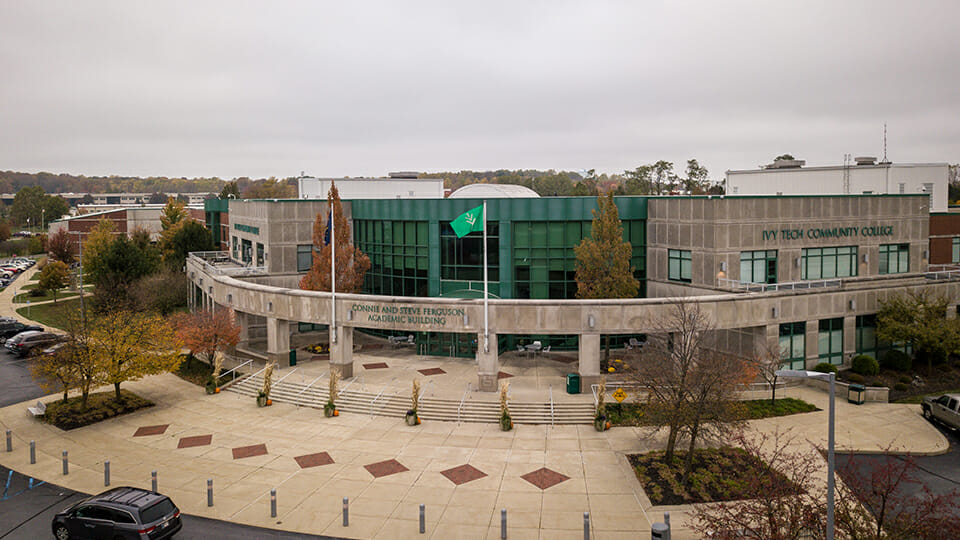Ivy Tech, Crane tout early success of tech transfer course
Subscriber Benefit
As a subscriber you can listen to articles at work, in the car, or while you work out. Subscribe Now
In April, Ivy Tech Community College launched an online course designed to give small businesses owners and entrepreneurs an introduction on how to work with Federal Laboratories and Technology Transfer Offices in order to grow their businesses.
In partnership with Naval Surface Warfare Center, Crane Division, the program also aims to help government labs make their patented technologies available for commercial purposes.
“The government is trying to be more diligent about doing that,” said Steve Bryant, executive director of the Gayle and Bill Cook Center for Entrepreneurship at Ivy Tech’s Bloomington campus. “So we created the course to [show] what you need to know to potentially access government technology and what the process looks like.”
Bryant talked to Inside INdiana Business about the importance of having a program like this in place.
“People don’t know that these inventions are there and available for license or for purchase or whatever commercial purposes,” he said. “And if we are going to be one of the top entrepreneurial innovation-based states, we definitely want to have these kind of tools in the toolbox and certainly make sure that a course like this can teach you the basics, so you understand what’s there and what those contract vehicles or agreements you might be entering into look like.”
In addition to learning how to license federally developed patented technology, the program helps participants learn the process of collaborating with a federal lab’s scientists and engineers.
Since its launch, about 40 individuals have signed up for or completed the course, Bryant said.
Janet Anamary Namutebi, founder of EcoGrains, a startup focused on developing cost-competitive bio-based synthetic biofuels to compete with non-bio alternatives, called the course “incredibly informative.”
“[The course] addressed my concerns about tech development and innovation, empowering me to negotiate better license terms and secure long-term support from federal labs,” Namutebi said in written remarks. “Moreover, it made me realize the several potential revenue opportunities that can be leveraged for patented technologies, especially with the shared success stories and podcasts.”
Bryant said the early feedback has been very positive.
“There’s a lot of information out there, but we didn’t want to overload people with too much. So I would say an average individual, if they were to enroll in the course and take it, it would take about an hour, maybe to two hours total time if they really just wanted to get the basics and understand it,” he said.
The learning modules were made possible with a grant from the Office of Naval Research. Bryant said the early feedback is giving organizers more confidence about potentially launching another course that takes a deeper dive into the federal tech transfer process.
He said another goal is to replicate the course at other federal labs around the country.
“Oak Ridge [National Laboratory], Los Alamos [National Lab]–those are some of the more well-known federal labs that have technology that they create and have patents on products. Most people don’t know that you can license those. So it’s a way for the national organization to also partner to use it, and maybe we could white label it in the future to make it a little bit more, not just Crane focused.”
